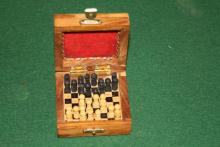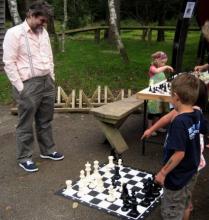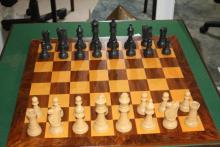Steinitz' rules of attack (from Kotov/Chernev)
- In chess, only the attacker wins. Defenders win only when the attacker makes a mistake, OR if the attacker had no right to attack in the first place. Even then, the defender must become the attacker to win.
- The right to attack belongs only to that side which has the better position - a positional advantage of some sort.
- If you have the advantage, you have not only a right to attack, but also a duty to attack, otherwise there is the risk of losing the advantage.
- The attack is to be directed against the weakest spot in the opposing position.
- The defending side must be prepared to defend and make concessions, or take a risk and try a counter-attack.
- An attack undertaken without sufficient positional basis must be repelled with best play, and will lead to a disadvantage for the prospective attacker.
Vukovic's Guidelines for attack
- If you attack the king, make sure that either your opponent cannot counterattack, or at least that your attack is more quick or more dangerous.
- So, you must look at the whole board, and the chances for both sides, when deciding whether to attack or not.
- Security in the centre lends support to a wing attack. A central pawn blockade prevents or limits counter-attacks, and makes a pawn attack easier.
- This is particularly true of attacks with pawns, which must creep forward more slowly than other pieces. If you can make an attack with pieces alone, leave your pawns at home.
- If you already have a pawn advanced, e.g. to f5, which may block your bishop on the diagonal b1-h7, then you might be better off going for a pawn storm by advancing the g-pawn.
- As a rule, it is difficult to break through with pawns against the unweakened castled king's position. This is because the pawn wave can be blockaded.
- So, it is usually important to weaken the castled position first (e.g. by ganging up on h7 you might force ...g6 or ...h6).
- Pawns don't half get in the way of rooks. If you cannot open a file, you can often get your rooks into action in front of your pawns, for example, by playing them to the third rank.
- Pawn advances loosen your position, and may be a disadvantage in the ending.
- Although you must be careful before starting an attack, once you have started you must go in as hard and fast as you can. This is even more important if you realise you shouldn't have started the attack quite yet - if you try to back out you will only make things worse.





























































